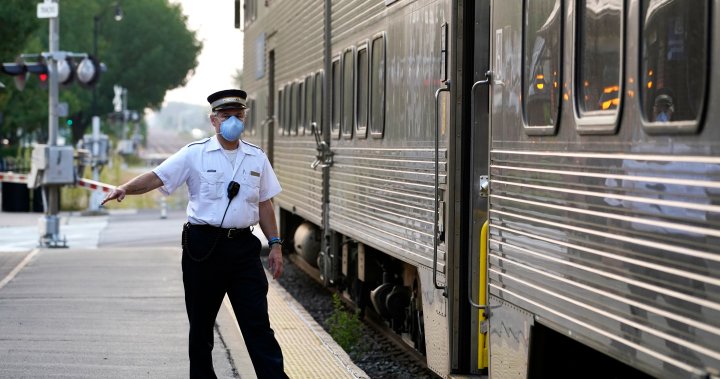
U.S. Congress moving to take up bill preventing looming rail strike
Global News
Railroad unions on Tuesday decried Biden’s call for Congress to intervene in their contract dispute, saying it undercuts their efforts to address workers’ quality-of-life concerns.
Congress is moving swiftly to prevent a looming U.S. rail workers strike, reluctantly intervening in a labor dispute to stop what would surely be a devastating blow to the nation’s economy if the transportation of fuel, food and other critical goods were disrupted.
The House was expected to act first on Wednesday after President Joe Biden asked Congress to step in. The bill lawmakers are considering would impose a compromise labor agreement brokered by his administration that was ultimately voted down by four of the 12 unions representing more than 100,000 employees at large freight rail carriers. The unions have threatened to strike if an agreement can’t be reached before a Dec. 9 deadline.
Lawmakers from both parties expressed reservations, but the intervention was particularly difficult for some Democratic lawmakers who have traditionally sought to align themselves with the politically powerful labor unions.
Sen. Bernie Sanders, a Vermont independent who caucuses with Democrats, announced that he would object to fast-tracking the president’s proposal until he can get a roll-call vote on an amendment that would guarantee seven paid sick days for rail workers. Some of the more liberal lawmakers in the House such as Reps. Jamaal Bowman of New York and Cori Bush of Missouri tweeted that they couldn’t support the measure.
Still, the bill was expected to receive a significant bipartisan vote. That show of support began when the Republican and Democratic leaders of the House and Senate met with Biden on Tuesday at the White House.
“We all agreed that we should try to avoid this rail shutdown as soon as possible,” Senate Majority Leader Chuck Schumer, D-N.Y., said as he returned to the Capitol.
A letter from House Speaker Nancy Pelosi to Democratic colleagues promised two votes, reflecting the consternation she was hearing from members. The first vote will be on adopting the tentative labor agreement. The second will be on a measure to add seven days of paid sick leave for railroaders to the agreement.
“It is with great reluctance that we must now move to bypass the standard ratification process for the Tentative Agreement,” Pelosi wrote. “However, we must act to prevent a catastrophic strike that would touch the lives of nearly every family: erasing hundreds of thousands of jobs, including union jobs; keeping food and medicine off the shelves; and stopping small businesses from getting their goods to market.”

 Run 3 Space | Play Space Running Game
Run 3 Space | Play Space Running Game
 Traffic Jam 3D | Online Racing Game
Traffic Jam 3D | Online Racing Game
 Duck Hunt | Play Old Classic Game
Duck Hunt | Play Old Classic Game

















